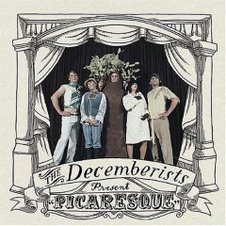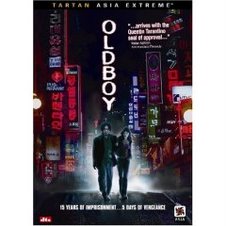There is no more depressing day than the first Monday after Daylight Savings Time ends.
It shouldn't be dark when you leave work. Isn't there some way we can adopt Daylight Savings Time permanently? Just say, from now on, 4 is 5. Or better yet, just let me out of work at 4.
I'm getting depressed working my crappy temp job from 8-5 every day. The job isn't that bad, but it's depressing to be nearing 30-years-old and only making $24,000 a year. A year ago I was making 10 grand more and having considerably more fun.
I'm not complaining, I have a house and a wife and a car, all things that at one point seemed out of reach for me, but I like to at least have the illusion that my life isn't slipping away from me. And it's hard when it's already dark before you even leave work.
Monday, October 30, 2006
Friday, October 20, 2006
God hates the Mets: Tales from Game 7
I stumbled into work this morning a half hour late, unshaven, bleary-eyed and with a voice two octaves lower than normal. I blame Carlos Beltran. Had he been able to get a base hit last night, I might have been able to stumble into work triumphantly, still waving my "Let's Go Mets" towel above my head, and having no voice left at all.
Maude and I were able to get tickets to game 7 to watch our beloved Mets take on the St. Louis Cardinals. Unfortunately, it didn't turn out quite the way we had hoped. We left for the game at 3:30 pm and didn't get home until 3:10 am, a sacrifice that would have seemed trifling had the Mets won, but turned out to be grueling in defeat.
We decided to park at the train station and take the train in to the game, having learned the hard way during the season that driving to and from Shea Stadium on game night is best left to sociopaths and masochists. In the train station parking lot, we rode on the elevator with a young couple. The man, noticing our Mets shirts, asked if we were going to the game. Then he said, "We're going to a Broadway play; want to switch tickets?"
"Hey!" his date objected. "What about me?"
Two hours and two trains later, we filed off the subway and walked towards the ballpark, as spontaneous chants of "Let's go Mets" erupted along with deep-throated growls. We neared the stadium in an electric stream of orange and blue, walking behind two red dots: man with his five-year old son, holding hands and wearing matching Pujols jerseys. I imagine that at some point in the game the kid looked up at his father and asked, "Daddy, why do all these people hate us?"
Shortly after we had taken our seats, the game began. I have never seen a more keyed-up crowd in my life. The entire first inning, not a single person sat down, and every strike pitched by Oliver Perez was greeted with a roar that sounded like a touchdown had been scored. 55,000 people screaming in unison and whipping the air with our complimentary white towels for a 1-1 pitch. It was incredible.
Our seats, of course, were not. It didn't bother us as we were just happy to be part of that crowd, but the Mets should really be ashamed to sell the seats we occupied. We were so far under the overhang that any fly ball was instantly out of view; we had to read the body language of the outfielders to tell if it was a pop-up or a homerun. To add insult to injury, there was bedraggled bunting hanging from the upper-deck that blocked our view even more. These seats only cost $20 during the season (which is fairly reasonable) but it's a bit harder to swallow when you're paying 80 bucks a pop for this at a playoff game. Hopefully, our $160 went directly into the new stadium fund to ensure only great sightlines.
As the game progressed, social barriers came down. After great defensive plays by the Mets, the crowd would yell in elation and high-five any stranger in slapping distance. It was like a Catholic mass when the priest invites you to shake the hands of people sitting around you. I didn't know any of the people in my section, but I slapped all of their hands. There is something oddly satisfying about this, especially in a city like New York.
Ultimately, though, it was not to be. The combined voice of 50,000 people cannot make a bat hit a ball. We were dejected because we had come so close. Sure, the Mets and the Cardinals were just playing for the honor of getting thumped by the Tigers in the World Series, but it would have been nice just to be invited. The entire trip home, strangers would ask if we had been at the game and commiserate with us.
Sitting on a commuter train at two in the morning is not most fun place to be when you're thinking about how you have to be at work the next morning. I was deflated. However, as we drove towards the exit of the train station parking garage, we saw the same couple from earlier in the evening. They must have been in a different car on the same train, returning from their Broadway play. I imagined that they were glad they hadn't traded tickets with us after all, but, despite it all, so was I.
There is camaraderie even in defeat.
Maude and I were able to get tickets to game 7 to watch our beloved Mets take on the St. Louis Cardinals. Unfortunately, it didn't turn out quite the way we had hoped. We left for the game at 3:30 pm and didn't get home until 3:10 am, a sacrifice that would have seemed trifling had the Mets won, but turned out to be grueling in defeat.
We decided to park at the train station and take the train in to the game, having learned the hard way during the season that driving to and from Shea Stadium on game night is best left to sociopaths and masochists. In the train station parking lot, we rode on the elevator with a young couple. The man, noticing our Mets shirts, asked if we were going to the game. Then he said, "We're going to a Broadway play; want to switch tickets?"
"Hey!" his date objected. "What about me?"
Two hours and two trains later, we filed off the subway and walked towards the ballpark, as spontaneous chants of "Let's go Mets" erupted along with deep-throated growls. We neared the stadium in an electric stream of orange and blue, walking behind two red dots: man with his five-year old son, holding hands and wearing matching Pujols jerseys. I imagine that at some point in the game the kid looked up at his father and asked, "Daddy, why do all these people hate us?"
Shortly after we had taken our seats, the game began. I have never seen a more keyed-up crowd in my life. The entire first inning, not a single person sat down, and every strike pitched by Oliver Perez was greeted with a roar that sounded like a touchdown had been scored. 55,000 people screaming in unison and whipping the air with our complimentary white towels for a 1-1 pitch. It was incredible.
Our seats, of course, were not. It didn't bother us as we were just happy to be part of that crowd, but the Mets should really be ashamed to sell the seats we occupied. We were so far under the overhang that any fly ball was instantly out of view; we had to read the body language of the outfielders to tell if it was a pop-up or a homerun. To add insult to injury, there was bedraggled bunting hanging from the upper-deck that blocked our view even more. These seats only cost $20 during the season (which is fairly reasonable) but it's a bit harder to swallow when you're paying 80 bucks a pop for this at a playoff game. Hopefully, our $160 went directly into the new stadium fund to ensure only great sightlines.
As the game progressed, social barriers came down. After great defensive plays by the Mets, the crowd would yell in elation and high-five any stranger in slapping distance. It was like a Catholic mass when the priest invites you to shake the hands of people sitting around you. I didn't know any of the people in my section, but I slapped all of their hands. There is something oddly satisfying about this, especially in a city like New York.
Ultimately, though, it was not to be. The combined voice of 50,000 people cannot make a bat hit a ball. We were dejected because we had come so close. Sure, the Mets and the Cardinals were just playing for the honor of getting thumped by the Tigers in the World Series, but it would have been nice just to be invited. The entire trip home, strangers would ask if we had been at the game and commiserate with us.
Sitting on a commuter train at two in the morning is not most fun place to be when you're thinking about how you have to be at work the next morning. I was deflated. However, as we drove towards the exit of the train station parking garage, we saw the same couple from earlier in the evening. They must have been in a different car on the same train, returning from their Broadway play. I imagined that they were glad they hadn't traded tickets with us after all, but, despite it all, so was I.
There is camaraderie even in defeat.
Thursday, October 05, 2006
Commuting with Krakauer
Before moving last year, I had always commuted to work via public transportation. It wasn't always fun having to check the subway seat for urine, but it did have certain advantages. Leaving the driving to someone else, I could read books. In fact, the majority of my reading time came during my morning and evening hour on the train.
Now I live in the land of cars, and I have to drive 40 minutes to get to work and sometimes as long as an hour to get home. Sitting in gridlock for an hour and a half each day can get pretty old, but it's even worse when you feel like you're just wasting the time. In the beginning, I listened to NPR obsessively, but there are only so many stories I can listen to about Hurricane Katrina, the Bush White House, and the fascinating subject of porches. I had to find a more productive use of my commute.
Finally, about a month ago, I had an epiphany: I could check out audiobooks from the library and listen to them while I drove. There are so many books that I want to read, and I know I'll never get to them all. This is the perfect way to be able to get some "reading" done while sitting behind the wheel.
Audiobooks aren't perfect. You are at the mercy of the narrator's voice, which all too often is inflected with obnoxious mannerisms or over-the-top accents. Also, it's a lot easier to follow a complex thought on the page than to listen to it read aloud. Sometimes, when someone cuts me off in traffic and I'm cursing at them through my windshield, I'll completely tune out and have to rewind the CD to get my bearings again.
Since I don't get as much out of books on tape, I keep to strictly non-fiction. I figure it's kind of like attending a lecture in college. It doesn't matter if I don't absorb every word as long as I get the gist. So far, I've already listened to three books on CD: Stephen Greenblatt's Will in the World: How Shakespeare Became Shakespeare, Truman Capote's In Cold Blood, and most recently, Jon Krakauer's Under the Banner of Heaven: A Story of Violent Faith.
I had never actually sat down and read Under the Banner of Heaven, though I had skimmed through it extensively when it came out in 2003. What surprised me most while listening to the audiobook version is the change in my reaction from then to now. When it came out I was full of righteous indignation even though I hadn't been to church once in the previous five years. I didn't really believe in Mormonism, but I still wasn't certain that it wasn't true either. I had unwittingly retained a vestigial belief and with it a great deal of defensiveness.
My objections at the time were that Krakauer: (a) didn't do enough to distinguish LDS from FLDS, (b) blamed on mainstream Mormonism the actions of a few madmen, and (c) delivered a particularly low blow on Elizabeth Smart. I didn't read the book all the way through (Maude had bought a copy and read it already) because it made me so mad.
Three years on, after losing all of my belief, the book didn't upset me at all. I still think non-Mormons could be confused between the FLDS and LDS, since Krakauer shifts from talking about one to the other frequently. However, I hadn't realized at the time how many of the FLDS in question were born mainstream Mormon and only became FLDS later in life. The Lafferty brothers and Brian David Mitchell were regular Mormons who somehow morphed into violent fundamentalists; this is not something that is acknowledged in most church circles. Because they had been excommunicated by the time they committed their crimes, they are seen as completely unconnected to Mormonism. This despite the fact that these heinous acts were overtly religious in nature and specifically tied to Mormonism and polygamy.
I still think Krakauer missteps badly in his almost casual assertion that Mormonism helped victimize Elizabeth Smart by making her conditioned to accept authority. It's certainly a plausible theory, but it seems unseemly and unnecessary to me to speculate on the mental condition of a sex abuse victim. There is plenty to focus on in the perpetrator and his religious motives for the crime.
Apart from these objections, I thought it was a very compelling book that did a good job of condensing 200 years of church history and highlighting the dangerous fringes of faith. I think a lot of my earlier hostility towards the book stemmed from my assumption that Krakauer was digging through the dirty laundry to try to discredit the church and imply that all of us Mormons were dangerous fanatics. Now I can see that he is simply trying to explain how extremism (in this case Mormon Fundamentalism) can appeal to some people and cause them to justify frighteningly inhumane acts.
There were a lot of things that I simply didn't want to hear or believe about the church three years ago, so it's probably a good thing that I didn't force my way through this book back then. I had to figure these things out for myself first, before I was willing to accept the word of an outsider.
The most important thing is that I learned a lot more in the week or so it took to listen to Under the Banner of Heaven than I would have learned listening to NPR. I think I'll take my pledge drive money and donate it to the library instead. Take that, Terry Gross.
Now I live in the land of cars, and I have to drive 40 minutes to get to work and sometimes as long as an hour to get home. Sitting in gridlock for an hour and a half each day can get pretty old, but it's even worse when you feel like you're just wasting the time. In the beginning, I listened to NPR obsessively, but there are only so many stories I can listen to about Hurricane Katrina, the Bush White House, and the fascinating subject of porches. I had to find a more productive use of my commute.
Finally, about a month ago, I had an epiphany: I could check out audiobooks from the library and listen to them while I drove. There are so many books that I want to read, and I know I'll never get to them all. This is the perfect way to be able to get some "reading" done while sitting behind the wheel.
Audiobooks aren't perfect. You are at the mercy of the narrator's voice, which all too often is inflected with obnoxious mannerisms or over-the-top accents. Also, it's a lot easier to follow a complex thought on the page than to listen to it read aloud. Sometimes, when someone cuts me off in traffic and I'm cursing at them through my windshield, I'll completely tune out and have to rewind the CD to get my bearings again.
Since I don't get as much out of books on tape, I keep to strictly non-fiction. I figure it's kind of like attending a lecture in college. It doesn't matter if I don't absorb every word as long as I get the gist. So far, I've already listened to three books on CD: Stephen Greenblatt's Will in the World: How Shakespeare Became Shakespeare, Truman Capote's In Cold Blood, and most recently, Jon Krakauer's Under the Banner of Heaven: A Story of Violent Faith.
I had never actually sat down and read Under the Banner of Heaven, though I had skimmed through it extensively when it came out in 2003. What surprised me most while listening to the audiobook version is the change in my reaction from then to now. When it came out I was full of righteous indignation even though I hadn't been to church once in the previous five years. I didn't really believe in Mormonism, but I still wasn't certain that it wasn't true either. I had unwittingly retained a vestigial belief and with it a great deal of defensiveness.
My objections at the time were that Krakauer: (a) didn't do enough to distinguish LDS from FLDS, (b) blamed on mainstream Mormonism the actions of a few madmen, and (c) delivered a particularly low blow on Elizabeth Smart. I didn't read the book all the way through (Maude had bought a copy and read it already) because it made me so mad.
Three years on, after losing all of my belief, the book didn't upset me at all. I still think non-Mormons could be confused between the FLDS and LDS, since Krakauer shifts from talking about one to the other frequently. However, I hadn't realized at the time how many of the FLDS in question were born mainstream Mormon and only became FLDS later in life. The Lafferty brothers and Brian David Mitchell were regular Mormons who somehow morphed into violent fundamentalists; this is not something that is acknowledged in most church circles. Because they had been excommunicated by the time they committed their crimes, they are seen as completely unconnected to Mormonism. This despite the fact that these heinous acts were overtly religious in nature and specifically tied to Mormonism and polygamy.
I still think Krakauer missteps badly in his almost casual assertion that Mormonism helped victimize Elizabeth Smart by making her conditioned to accept authority. It's certainly a plausible theory, but it seems unseemly and unnecessary to me to speculate on the mental condition of a sex abuse victim. There is plenty to focus on in the perpetrator and his religious motives for the crime.
Apart from these objections, I thought it was a very compelling book that did a good job of condensing 200 years of church history and highlighting the dangerous fringes of faith. I think a lot of my earlier hostility towards the book stemmed from my assumption that Krakauer was digging through the dirty laundry to try to discredit the church and imply that all of us Mormons were dangerous fanatics. Now I can see that he is simply trying to explain how extremism (in this case Mormon Fundamentalism) can appeal to some people and cause them to justify frighteningly inhumane acts.
There were a lot of things that I simply didn't want to hear or believe about the church three years ago, so it's probably a good thing that I didn't force my way through this book back then. I had to figure these things out for myself first, before I was willing to accept the word of an outsider.
The most important thing is that I learned a lot more in the week or so it took to listen to Under the Banner of Heaven than I would have learned listening to NPR. I think I'll take my pledge drive money and donate it to the library instead. Take that, Terry Gross.
Subscribe to:
Comments (Atom)



